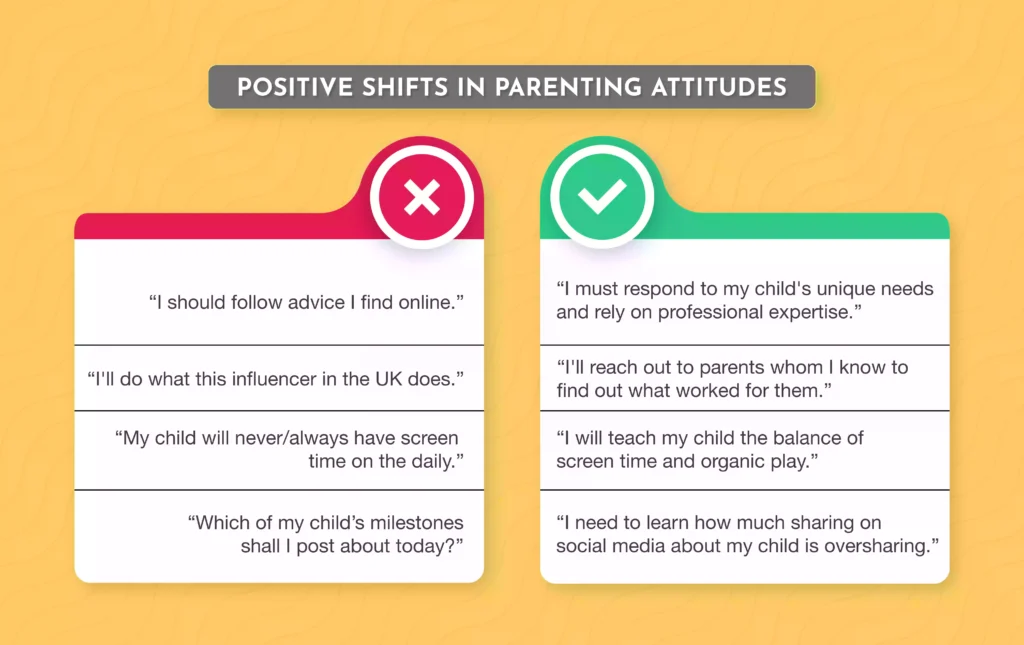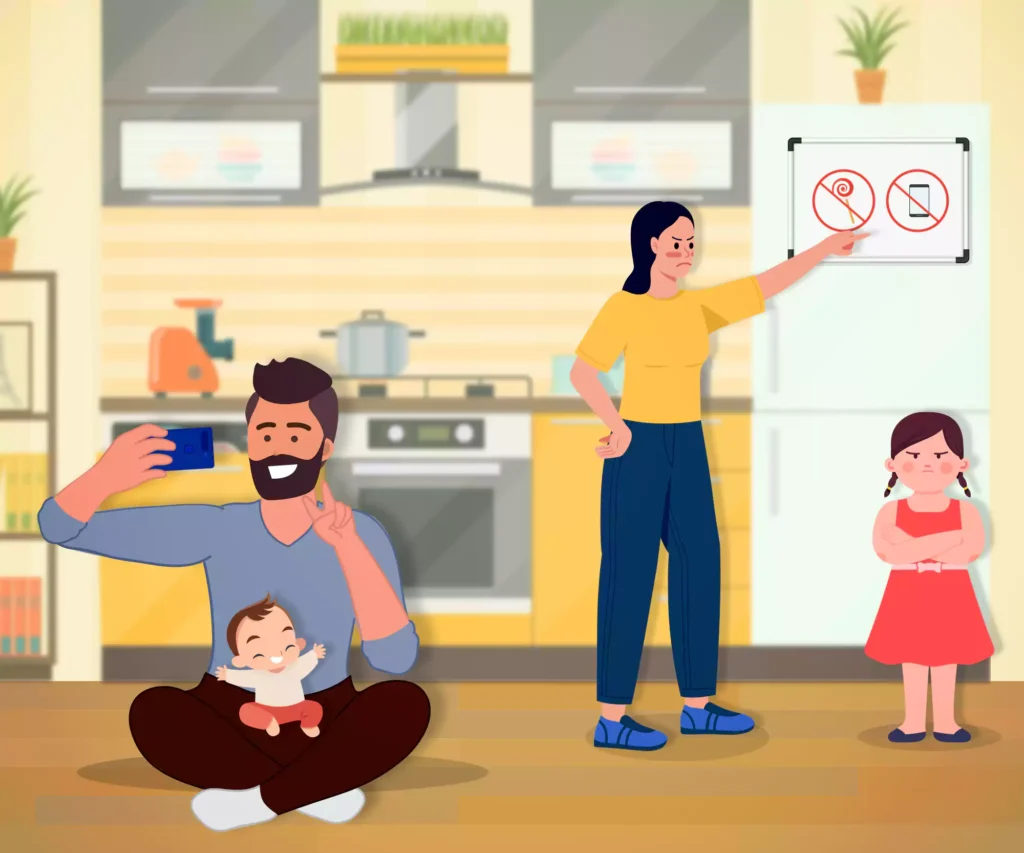Parenting in today’s digitalised world is far from easy. In the past, you raised your children somewhat like how your parents raised you, as per the traditions of your community. Your parenting choices could become a topic of discussion at family gatherings. Still, other than that, you were safe from prying eyes. However, with the internet permeating every aspect of our lives, we have an overflow of information, choices, and opinions. Every parent must now cross-analyse their child’s sleep routines, diaper brands, college funds, and beyond, with voices online. With all this intensified parenting pressure, how do parents adapt? Let’s explore.
Changing parenting styles
I’m sure you’ve never heard parents of older generations ever admit they were wrong. They always believed they knew what was best for their children. Their parenting styles were based on how their parents raised them because they believed the traditional methods wouldn’t fail. Moreover, they probably didn’t have the time to give it too much thought.
Let’s try to understand this trend using Maslow’s hierarchy of needs. Earlier, parents’ primary goals were to feed and clothe their children while ensuring that they conformed to the norms of their community. When these children became parents, these basic needs were already satisfied. So, the next generation of parents moved on to a new set of goals—they wanted their children to have promising careers, live in good localities, and marry suitable partners.
The current generation of parents has now moved on to the highest level of Maslow’s pyramid. We desire that our children maximise their potential in all possible ways. They must become models of physical, mental, and spiritual well-being. However, this goal puts enormous pressure on our children. Additionally, there is undue stress on the parents as well. Hence, for the parent and child to thrive, parents need to deprogramme themselves of the parenting styles they learnt from former generations.
Such deprogramming would enable parents to see that the circumstances under which they were raised are no longer applicable. Additionally, this would also help parents understand that recycling old parenting approaches does not always work.
Parenting confusion
Without old parenting approaches to rely on, parents are left with more questions than answers. Though the internet provides some solutions, information overload has its problems. Any modern parent—with or without a social media account—would see terms like ‘gentle’, ‘responsive’, and ‘intentional parenting’ everywhere. And to make matters worse, every content creator attaches new meanings to each term.
Let’s consider a scene from Black-ish, a sitcom which revolves around an African American family. Before I get to the exact moment I want to refer to, here’s something you should know: African American skin, known to feature fewer ceramides than the skin of other races, often needs the help of moisturising agents. Because of the many slurs and ignorant remarks that arise from this, it is understandably treated as a sensitive subject. So after the father puts lotion on their son Devante’s dry knees, Bow (the mother) tries to ensure that the child is not traumatised. While reassuring her child of his worth, we can hear her inner monologue reminding herself that ‘compliments are the new smoking’, ‘don’t focus on beauty, or he’s going to be an egomaniac’. This scene is an excellent example of the impossible standards modern parents set for themselves and each other. For instance, if you help your child, they can become dependent. Or, if you ignore their feelings, they can become emotionally distant in future relationships. The internet is brimming with parental advice, but the sources and authenticity are largely unknown.

The white mom style
Any casual observer on the internet would have noticed how things we consider ‘normal’ in non-white homes are ‘wrong’ in the eyes of the world wide web. This list of ‘wrongs’ includes feeding your child cow’s milk, bedsharing, and not having a sleep schedule for your baby. Most of these are standard practices in most non-white cultures during infancy and toddlerhood. However, the golden standard of childcare in the online community is based on what the white middle class considers normal.
My kid is better than yours!
Social media has made it mandatory for every milestone to be documented instantly. When parents see their friends posting videos about their children saying their first word or taking their first step, they feel forced to push their same-age child to do the same before they’re ready. When these comparisons pile up, parents must remind themselves that there is no hard-and-fast rule when it comes to parenting. Additionally, by recording and analysing every action your child makes, you may just be causing them to develop the need to look for outside validation. Moreover, once the children grow up, they may dislike how their parents shared their embarrassing childhood moments with the world.
Parenting: the mom life
Despite all the changes in parenting styles, one thing remains constant: the majority of child-rearing responsibility falls on mothers. As a society, we still expect mothers to lose themselves in the role of parent. Social media adds to the guilt-tripping of working moms and stay-at-home moms alike. It makes working moms feel guilty for being away from their children while making stay-at-home moms feel guilty about not being more ambitious. Social media’s emphasis on perfection has left many mothers anxious and depressed. But, thankfully, there is a positive side to social media as well. Many parents have come together to encourage, acknowledge, empathise, and share their struggles.
So, with all its parenting lessons, my biggest takeaway from the internet is this: communication is the answer. Parents need to communicate with each other, their children, other parents and, perhaps most importantly, with themselves. Guilt has no place in any of these equations. We must stop treating children like mad dictators, disagreeable roommates, or presidents-in-the-making. Instead, we need to treat children as children. And irrespective of the plethora of parenting advice you see on your feed, follow advice from certified professionals alone. Instead of attempting to raise perfect kids, let’s try to do a decent job and see where that takes us as individuals and parents.

